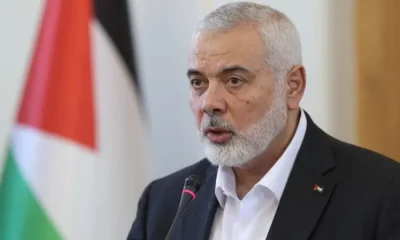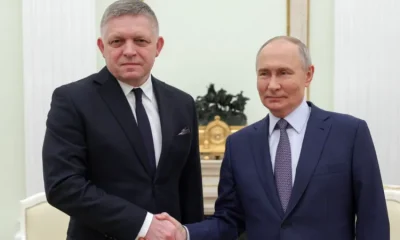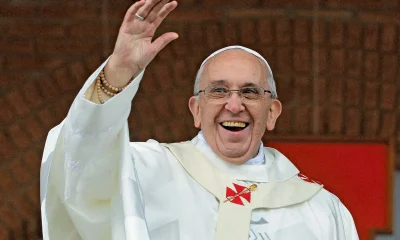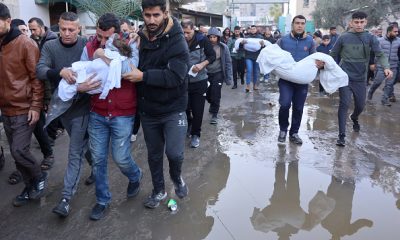International
Israeli Cabinet To Vote On 60-Day Ceasefire Deal With Hezbollah
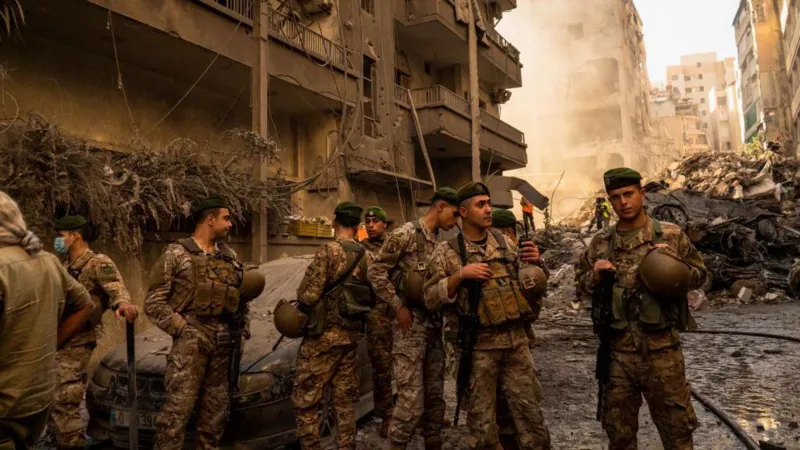
The Israeli cabinet is set to meet to discuss the approval of a ceasefire aimed at halting hostilities with Hezbollah, the Lebanese militia.
According to reports, the proposed truce would last for an initial 60 days and involve the withdrawal of Israeli forces from Lebanon. In exchange, Hezbollah would vacate areas south of the Litani River, roughly 30 kilometers (18 miles) north of the international border, to be replaced by Lebanese Army troops.
EDITOR’S PICKS
- Electricity Meter Costs Rise Again As Deregulation Takes Effect
- Biden, Harris Set To Congratulate Trump On Presidential Win
- Thousands Of ‘Trained’ Combatants Ready To Fight Israel – Hezbollah Chief
Despite ongoing diplomatic efforts, heavy fighting persists. On Monday, Lebanese authorities reported at least 31 casualties from Israeli airstrikes in southern Lebanon, while Hezbollah continued to launch rocket barrages into Israel.
The Israeli cabinet is expected to vote on the ceasefire agreement during a Tuesday meeting, with Haaretz confirming the agenda. A senior Israeli official told Reuters the session would formalize the deal’s text, while Lebanese sources revealed that the U.S. and France were preparing to announce the ceasefire imminently.
Key provisions of the deal, as reported by Israel’s Channel 12, include:
- A mutual ceasefire
- A temporary Israeli military presence in Lebanon for up to 60 days
- Replacement of Israeli forces by the Lebanese Army during withdrawal
- No Israeli-occupied buffer zone in southern Lebanon
- A U.S.-led five-country monitoring committee for implementation
- Lebanese government control over arms purchases and production
- A U.S. letter recognizing Israel’s right to retaliate if Hezbollah violates the agreement
Israeli Prime Minister Benjamin Netanyahu has reportedly agreed to the deal in principle. However, far-right National Security Minister Itamar Ben-Gvir has opposed the ceasefire, urging continued military operations for “absolute victory.”
FURTHER READING
- Hezbollah Launches 120 Projectiles From Lebanon Into Israel
- Full List of Chief of Army Staff Who Died in Office
- ECOWAS Court Partners ICRC To Domesticate International Humanitarian Law
Lebanese officials stress that any agreement must align with United Nations Security Council Resolution 1701, which ended the 2006 conflict. The resolution called for Hezbollah’s disarmament in areas south of the Litani River and an end to Israeli overflights, though both sides have accused the other of violations.
While talks between Israel and Hezbollah appear to be progressing, parallel negotiations to resolve the war in Gaza have stalled. Qatar, a key mediator between Israel and Hamas, recently withdrew from its role, citing prolonged deadlock.
The war in Lebanon, which began on October 8, 2023, after Hezbollah launched rockets in support of a Hamas attack, has taken a devastating toll. More than 3,750 Lebanese have been killed, over 15,600 injured, and more than a million displaced, according to Lebanese authorities. Israel’s campaign has targeted Hezbollah’s infrastructure and leadership, displacing 60,000 residents in northern Israel.
Click here to watch our video of the week:
Advertise or Publish a Story on EkoHot Blog:
Kindly contact us at [email protected]. Breaking stories should be sent to the above email and substantiated with pictorial evidence.
Citizen journalists will receive a token as data incentive.
Call or Whatsapp: 0803 561 7233, 0703 414 5611



